Chicken Rising
By D. Boyd
Conundrum Press
Traversing a period through the 1970s from preschool through sixth grade, Canadian cartoonist D. Boyd makes her debut with this autobiographical dissection of her relationship with her mother, with particular care taken to present the multifaceted complications that hover between mother and daughter and create a dynamic tension between the pulls of angry rebellion and exhausted submission for the kid.
Chicken Rising starts in 1970 as young Dawn’s life is about to change when her parents open up their own fried chicken joint called Crispy Dee in New Brunswick. An only child, she tries to find her place in their new life but is often left to her own devices to fill her time. She also struggles against what can only be described as hostility from her mother, a source of constant correction and criticism that she seems to view as constructive, but for Dawn, is the beginning of a childhood where no choice she makes, no matter how small, is the right one.
Told anecdotally in slices of Dawn’s life organized by school year, Boyd often presents the incidents in a deadpan manner, as Dawn is slowly tortured — sometimes so painfully that laughter is the only response you can give it — by her critical mother who seems charged with everything from enforcing gender roles that do not come naturally to Dawn to berating her for showing any amount of individuality that differentiates her from not only the other kids, but the way Dawn’s mother was raised and how she envisioned the life of her own daughter.
Boyd’s triumph here is the subtlety she portrays, the small, repetitive, probably normal oppressions that kids face and which shapes who they become, oppressions that are probably unconscious to the parent or other authority figure doling them out. But as much as this could beat down a reader, it mostly just creates sympathy through recognition. I bet most people have some aspect of this experience in their life. And the placement in Canada in the 1970s definitely helps lighten the load. Boyd’s attention to the culture of kids at that time is sweet and amusing.
She also does a great job at tracing the beginnings of the casual daily harassment that girls face at an early age. It made me shiver, the scenes of boys bullying Dawn and, once puberty sets in, harassing her by groping her, because they were so familiar. I remember that happening to girls when I was a kid. It’s another major aspect of what makes a person who they are, not by themselves, but in the context of other people. Boyd’s made as charming and amusing a work as possible covering the recurring childhood traumas that are treated as just a part of growing up but which shape women’s lives, personalities, and relationships later in life, and not in a desirable way.
The Consumptive #4
By Jamie Tanner
Consumptive Press
In this issue of Tanner’s self-published anthology series, readers will encounter the very cryptic and fairly haunting “Testimony,” a spare post-apocalyptic narrative takes the form of a sacred text by way of rambling religious fanatic testifying some kind of vision. Think of as a more calm Book of Revelations, but still with an uncanny bleakness and the simultaneous perspective of seeing horrible things unfold for the first time, while also having a disturbing kind of hindsight.
In Tanner’s telling, there are the AfterDays, which are witnessing, and which coming following the BeforeTymes, and which are leading nowhere good for the spare society of animal-headed beings who face each other in violent confrontation and hide to preserve a future that is never coming.
Tanner lets this story of the future unfold in a series of bleak panels that ask the reader to provide the more linear interpretation that the words do not. For the narrative, Tanner concocts a kind of pidgin English that mangles certain words into the same old meanings, but nevertheless wrong — it reminded me a little of Russell Hoban’s Riddley Walker in that way. And what this broken language has to express is huge. It includes not only the end story of a civilization, but the mysterious connections made with some kind of system in the Great Beyond.
But Tanner reveals no more than he wishes to, and it’s a great experience because of that.
Tanner also includes cartoonish bits and bobs at the end, most notably the wise “How to Ensure the Quality of Your Creative Work,” which is a little professional advice we should all adhere to as we seek immortality — or maybe I have it mixed up, maybe Tanner is being sarcastic and prescribing the thing we SHOULDN’T DO. I get that mixed up. Regardless, I enjoyed this and identified with it.
Tanner says that this one is making its debut at the MOCCA Arts Festival in NYC this weekend (April 6-7th), so you should go find his table and buy one of these great little books.


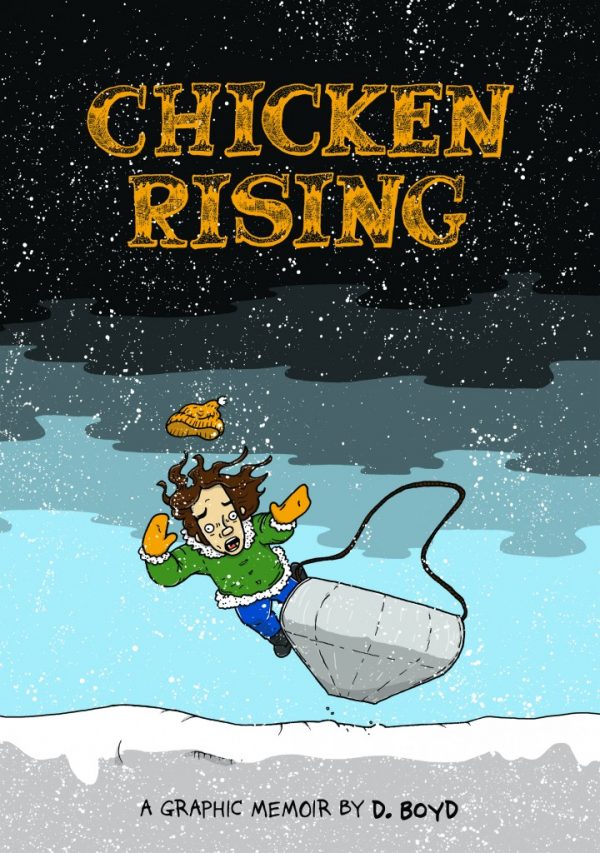
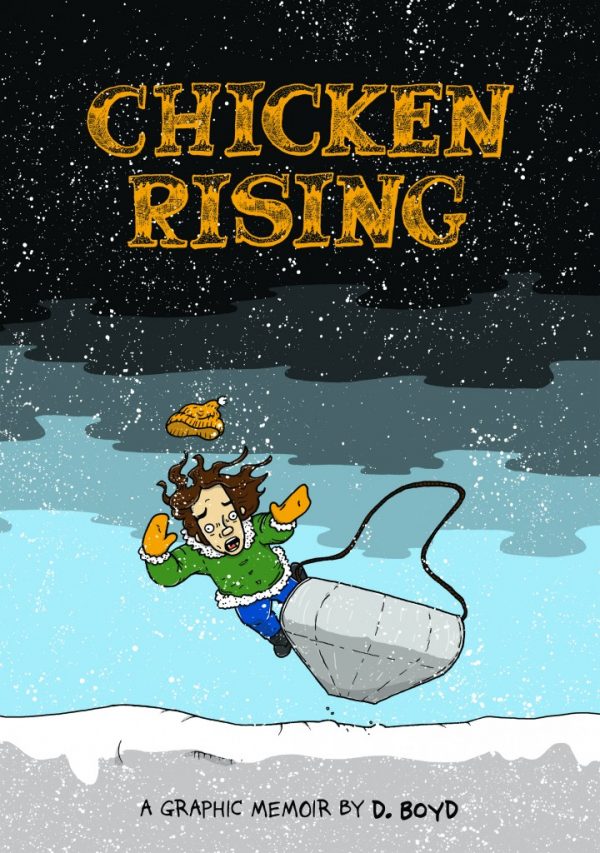
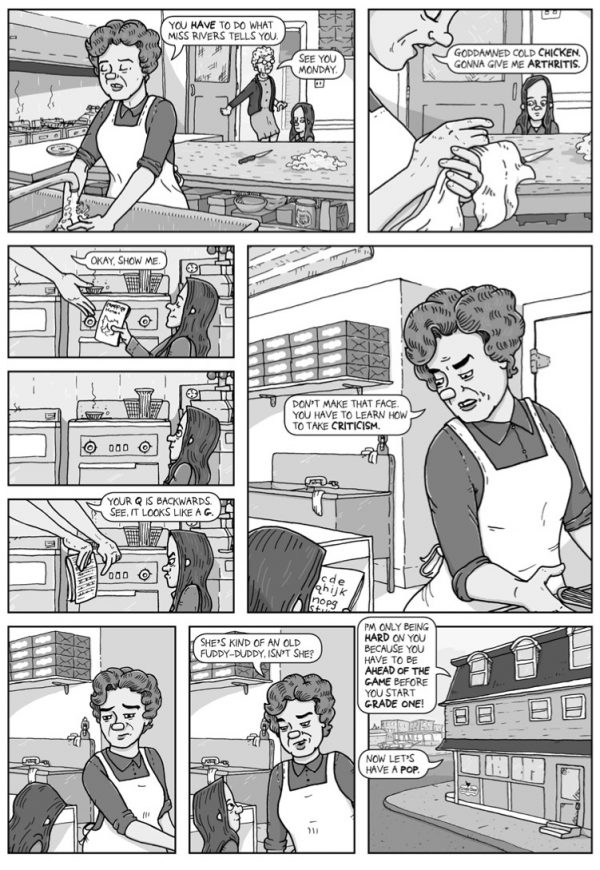
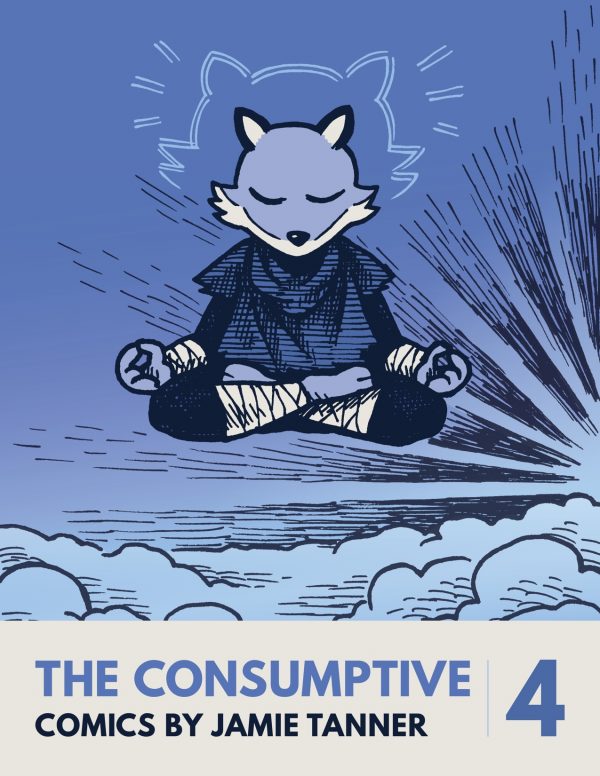
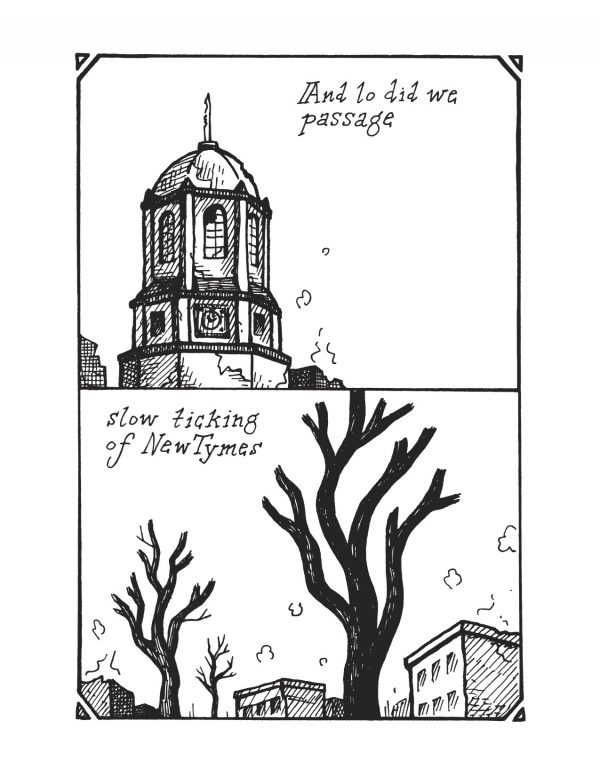
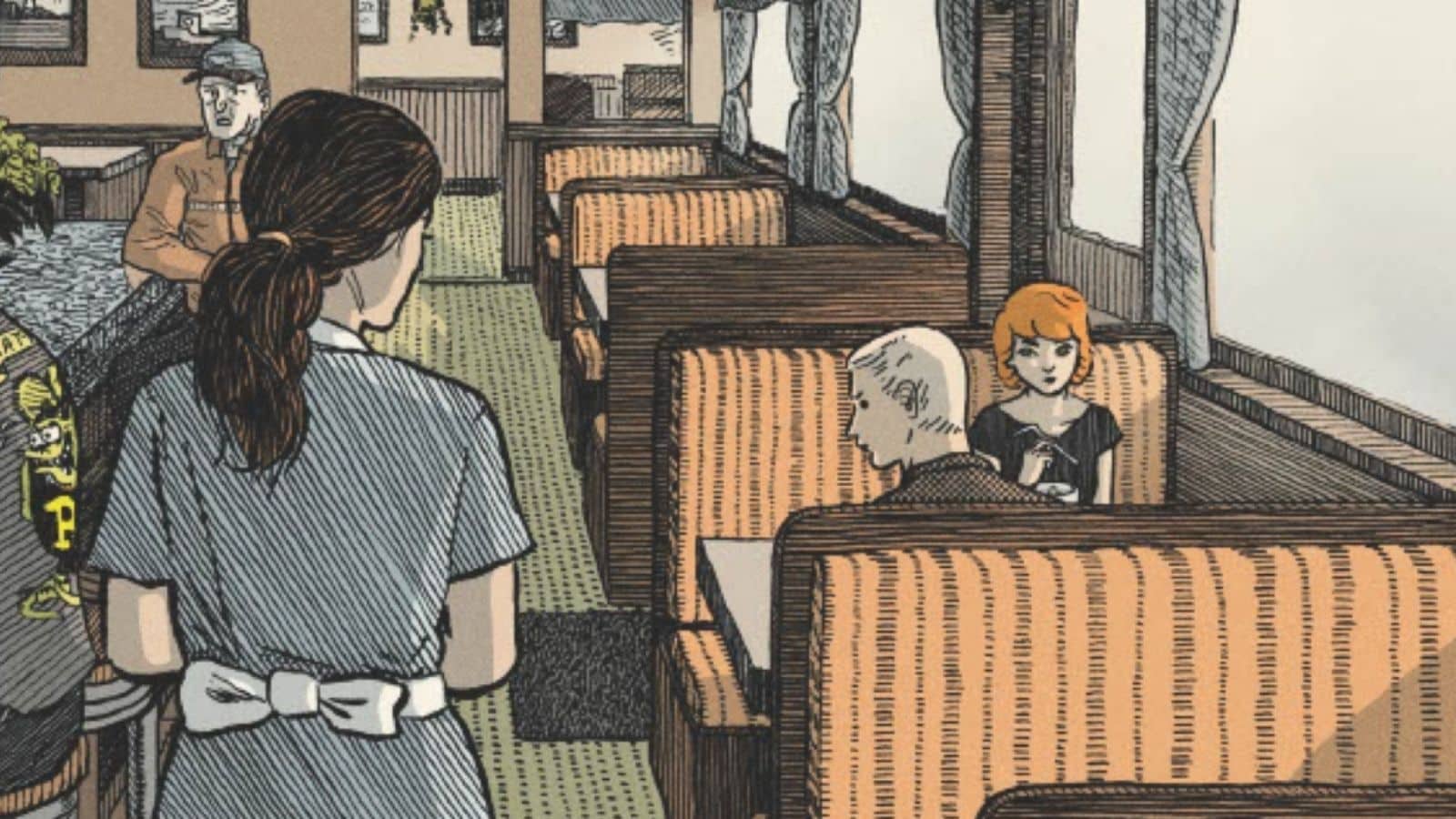
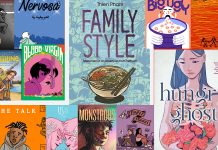




Comments are closed.